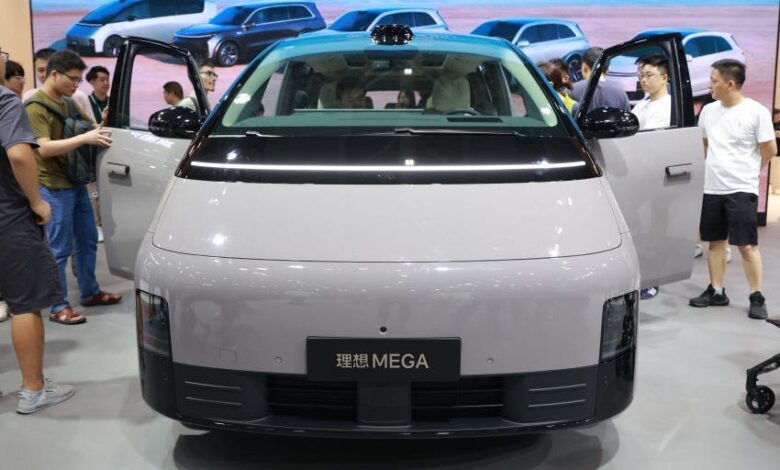1,000 Autoworkers Had to Quit or Sit Around on Minimum Wage: Nikkei

- Li Auto workers are facing layoffs or minimum wage due to weak electric vehicle sales.
- China’s auto sector is struggling with overproduction, impacting domestic and international markets.
- Western concerns over subsidies and overcapacity add pressure as Chinese EV makers seek new markets.
As China grapples with manufacturing overproduction, some workers at one of China’s auto plants face a difficult choice about their jobs.
Newlywed Lisa told Nikkei on Tuesday that in her brand-new factory for Li Auto, more than 1,000 employees like her were given the choice of either quitting or receiving minimum wage until business improves.
“We were told that our pure electric vehicle sales are weak due to the bad conditions, so the company has to cut production,” said 27-year-old Lisa, who spoke on the condition of anonymity to Nikkei. “I will try to find a job. Otherwise, I will be starving to death.”
Local media reported last month that Li Auto was planning to cut 18% of its workforce.
Li Auto delivered 80,400 cars in the first three months of the year, up 53% from the same period last year — but down 39% from the last quarter of 2023, per its financial results. The company did not respond to a request for comment from Business Insider.
Tesla, by comparison, delivered 386,810 cars in the first quarter — down 8.5% from a year ago, and 20% from the prior quarter.
Li Auto’s financials are emblematic of the arc of China’s electric vehicle industry. Car makers scaled up production quickly but have struggled to drum up enough demand for all their cars, especially as domestic consumers face a real estate crisis and volatile stock market.
Some of those automakers are looking to other countries as bigger markets, but politicians seeking to protect local manufacturers are cutting China off. Last month, the White House said it would impose a 100% tax on Chinese-made EVs.
Yao Xiaodong, an official for a Chinese EV group, said at a recent meeting that manufacturers could “either go overseas or go bust,” Nikkei reported.
Chinese leaders have publicly said that the West’s focus on supposed overproduction is election-year posturing.
But Western investors and politicians have been raising red flags about overcapacity for years, saying the Chinese government’s huge manufacturing subsidies have led to cheap goods that distort the global market.
“China is now simply too large for the rest of the world to absorb this enormous capacity,” US Treasury Secretary Janet Yellen said at a press conference in April.
China, meanwhile, is primarily concerned about factory underutilization and competition leading to too many unprofitable companies, BI reported last month.
Underutilization or closures of factories like Lisa’s means less tax revenue for regional governments who have often borrowed significant sums for local development, fewer materials purchased from other Chinese companies, and an unemployed or underemployed workforce.



